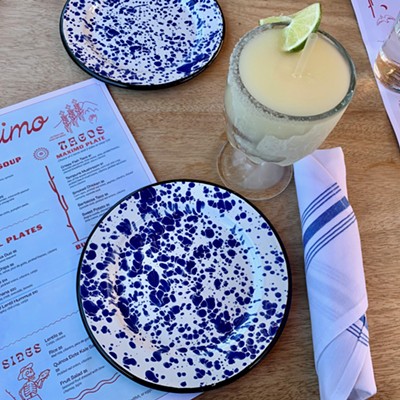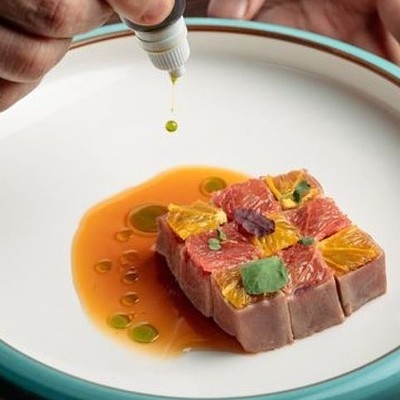Imagine a catastrophic hurricane has severed communication with the outside world. You're thirsty, but the water coming out of the tap is contaminated. Society has devolved into lawlessness, and your neighbors have stolen your bottled water by torchlight. The bars are probably closed.
But you're not worried -- you've got the LifePack Emergency Water Filter! The device uses a two-bag osmosis system and a shot of something lemon-lime-flavored to turn dirty water into "drink." The box claims you can use it to make anything except seawater and antifreeze potable. Sewage and industrial waste are "not recommended." Really -- you can fill the bag with Port Arthur's finest ditch water, then pee in it, and, after filtration, the resulting concoction merits only the sort of warning you'd give someone who's about to pair a steak with white wine.
But we weren't about to endorse the Emergency Water Filter without confirming that it's capable of satisfying your post-disaster hydration needs. After all, the kit isn't cheap -- about $35 at most camping places. (LifePack sent it to us for free, unsolicited.) To determine its effectiveness, the Houston Press Filtration Testing Committee -- or four staff members who enjoy putting off real work to drink out of something that looks like a colostomy bag -- settled on first filtering duck pond water from Hermann Park.
On the afternoon we stopped by, we counted five or six adult ducks and half a dozen babies swimming in the rectangular pond. After filling our bottles, we walked through a picnic area to ask a wizened park employee and the ostensibly transient young man sitting on the bench across from him about the water's quality.
"Man, kids be playin' in that water, dogs be playin' in that water..." the employee said.
"Ducks," added the bearded companion with the overstuffed backpack.
"Ducks," the employee confirmed, nodding and looking off in the distance. "Yeah, that water's dirty."
Satisfied with the unsanitary nature of our sample, we returned to the office to begin the filtration process. This is the biggest drawback of the Emergency Water Filter. Setting it up is easy -- just pour the dirty water into one "port" and a small bottle of the "sports drink syrup" into the other. But the osmosis takes six to 12 hours, which would probably seem like a long time if you were dying of thirst and couldn't watch TV. Also, though the bag holds two quarts of water, the process draws only about half of that into the "clean bag" -- the rest you dump out.
We were left with a few glasses of yellow-tinged liquid. Ironically, it looked like the urine of a particularly well-hydrated person. (Cryptic note in the instructions: If the filtered water looks dirty, "LifePack is compromised. Do not drink. Dispose of LifePack." We assume the makers would have added "Make peace with God" if there were more room after "Dispose of LifePack.")
We were a bit wary of the finished product, but a few timid sips revealed the "sports drink" tastes like, well, watered-down lemon-lime sports drink. One staffer complained that it was mildly unpleasant before pouring himself a second glass. It was much better than the warm Tecate we subsisted on after Hurricane Ike, and hours later, we felt fine -- no dysentery, no duck-waste aftertaste, none of the nasty stuff commonly associated with pond water and warm Mexican beer. LifePack won round one.
Round two would bring a much more repulsive test: a liter of Taaka vodka.
The Taaka actually cost us exactly $6.66, which is appropriate given its diabolically foul odor and taste. Not really something you'd want to be stuck with in the event of a deadly natural disaster, although the ensuing social breakdown would provide a chance to test Taaka's marketing slogan: "Mixes easy...just add people."
We repeated the same steps we took with the duck water and gathered at the table to sample the value-brand-booze-cum-"drink." We dubbed the cocktail a "ghettopocalypse." It was the worst shit in the world.
We've had bad vodka, and we've had bad vodka mixed with Gatorade. This was much worse. We could talk at length about the ghettopocalypse and its Sherman's March down our throats. But we'd rather not revisit those memories.
(We should note that one taster found the drink tolerable. Strangely enough, he was the one who complained about the filtered water. He also, during his time in the Marines, consumed Listerine as an intoxicant.)
When it comes to dirty water, the Emergency Water Filter is effective. With rotgut, not so much. Of course, if you're a Taaka drinker, you'll probably be cool with just stealing some bottled water by torchlight, anyway.
Happy hurricane season!





